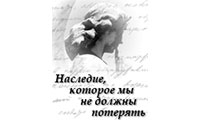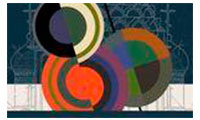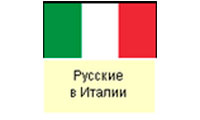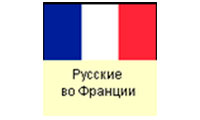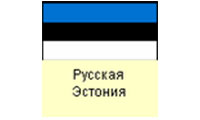Miroslav Mitrofanov
Miroslav Mitrofanov (December 18, 1966, Daugavpils, Latvian SSR) – is a politician and journalist, a member of the European Parliament (2018-2019).
Politician and publicist Miroslav Mitrofanov (original name Мирослав Борисович Митрофанов, official Latvian name - Miroslavs Mitrofanovs) was born on December 18, 1966 in Daugavpils.
He graduated from secondary school No. 9 in Daugavpils with in-depth study of English and mathematics. Due to the heavy study load only 12 out of 34 students, who started their studies in 1974 in class 1A, graduated from class 10A in 1984. Miroslav was not an excellent student; however, he gradually improved during graduation classes and was the Komsomol (Communist youth organization) leader of the class.
In 1984, he started biology studies in University of Latvia. After the first course he was recruited into the Soviet Army and served in the signal corps in the Far East of the USSR.
After the military service he returned to the university, where specialized himself in plant physiology, followed by human and animal physiology. He followed the advanced course of psychology. He was expelled from the Komsomol in 1988 for refusing to fulfill the duties of the group's leader.
In the university he studied together with the future president of Latvia – Raimonds Vejonis, and the future leader of the Green Party – Ingmars Lidaka. M. Mitrofanov graduated from the university in 1991.
While studying the final semesters, he worked at the chemical laboratory of Daugavpils’ meat plant.
First articles of M.Mitrofanov were published in Daugavpils City newspaper Красное знамя (‘Red Banner’) in the beginning of 1990. Since January 1991, he joined the editorial board. He worked as the head of the department of politics and continued as vice-editor-in-chief. In late 1991, the newspaper was renamed to ‘Dinaburg’.
In the 90s, M. Mitrofanov was one of the most popular journalists of Daugavpils. He specialized in publications and interviews related to politics during the period of social changes: the Perestroika and the restoration of independence of Latvia. During that time he did not belong to any political organization and provided equal opportunities for the publications of opinions of both the Popular Front of Latvia and the Communist Party of Latvia. After the restoration of independence he moved to critical positions in relation to the Popular Front and the parties who were heirs of the Popular Front of Latvia. In August 1994, he resigned from the newspaper due to his disagreements with the new editor.
In 2005, he took part in the establishment of a family enterprise ‘Lauma-D’, operating in the restaurant business. From January 1995 to November 1998, M. Mitrofanov worked as vice-director of this enterprise. In 2001, he left the board of enterprise founders.
He took part in the elections for the first time in 1993. He started as a non-party candidate to the Member of the 5th Saeima (Latvian national parliament) in the list of the Movement For Social Progress and Equality. Less than ten votes were not enough to be elected as a Member of the 5th Saeima.
In 1994, together with like-minded people, the representatives of the Russian intelligentsia of Daugavpils, he first created the Discussion Club “Аз есмь” (“Az Yesm” - “I am/I exist”), followed by the Patriotic Daugavpils Party ‘Hope’, which was created on its basis. The club ‘Az Yesm’ initiated the establishment of the Center for Russian Culture in Daugavpils ‘House of Kallistratov’.
In 1997, he co-founded the party ‘For Equal Rights’. For the next 20 years, he was a member of this party, the head of the Daugavpils branch, later on as a member of the editorial board, the Board, the Bureau, followed by the position of the party’s co-chairman.
In 1998, he established an NGO ‘Information Center for Human Rights of Daugavpils’. Over the next three years, the organization carried out human rights training programs in schools of Daugavpils and provided free legal assistance.
In 1998, M.Mitrofanov was elected to the 7th Saeima, representing the block ‘For Human Rights in a United Latvia’ (PCTVL/ЗаПЧЕЛ). During this legislative period, he was a member of the Committee on Human Rights and Public Affairs as well as the European Affairs Committee. As a member of the Permanent Delegation of Latvia in the joint Committee of the Saeima and the European Parliament, he participated in discussions on the future membership of Latvia in the European Union. He was the first Latvian Russian-speaking Member of Parliament to take a floor in the European Parliament. He achieved the inclusion of the provision on the preservation of secondary education in minorities’ languages into the final recommendations of the EP, dedicated to Latvia's joining the European Union.
In 2002, as a result of a conflict with one of the owners of a city newspaper and the Mayor of the city, he failed to be re-elected as a Member of the National Parliament. After the elections M. Mitrofanov was invited to work in the Parliament as an adviser for the group ‘For Human Rights in a United Latvia’.
In March 2003, the political group ‘For Human Rights in a United Latvia’ split due to the withdrawal of Members of Parliament from the National Harmony Party. A new group ‘For Human Rights in a United Latvia’ formed; it united Members of Parliament from the party For Equal Rights and Socialist Party. M.Mitrofanov became a senior advisor and managed to organize the work of the new group. The situation repeated in the autumn 2003, after the the majority of the socialists left the group and several former members of the National Harmony Party joined the group.
In October 2003, M. Mitrofanov, according to the initiative of the Russian schools Protection Headquarters (popular movement for protection of minorities’ schools of Latvia), accompanied the first delegation of students from Latvian Russian minority schools to the Parliamentary Assembly of the Council of Europe to meet with diplomats and politicians from different countries.
In June 2004, as a result of the first elections to the European Parliament in Latvia, party ‘For Human Rights in a United Latvia’ got its representation: Tatjana Zhdanok (Tatjana Ždanoka) was elected as a MEP. She offered Miroslav Mitrofanov to become a staff member for the Greens/European Free Alliance group in the EP. In this position he worked from September 2004 till May 2006.
In 2005, he co-founded the European Russian Alliance, the NGO intended to unite Russian-speaking public persons from the countries of the whole European Economic Area. Miroslav was elected as a vice-chair of the Alliance.
In March 2005, he participated in the elections to the local government, was elected as a Member of the Daugapils City Council, and became a vice-mayor of Daugavpils. For several months Mitrofanov regularly was travelling from Brussels to Daugavpils in order to fulfill his advisors functions in EP and to participate in the work of the local government. However, at the insistence of KNAB (Latvian anticorruption bureau), he was forced to leave the position in the Daugavpils City Council, since the law prohibited to hold both of these offices at the same time.
In the spring of 2006, he returned to Latvia and started on the elections of the 9th Saeima. In October 2006, he was elected as a Member of Parliament from the list of party ‘For Human Rights in a United Latvia’. During this legislative term he was a member of the Committee on Budget and Finances. The period of work in the Budget Committee coincided with the world economic crisis of 2008-2010, which strengthened the importance of the Budget Committee and the responsibility of MPs. In 2009-2010, M.Mitrofanov several times represented Latvia at the meetings of heads of budget committees of EU MS parliaments. During this parliamentary period, he regularly published articles on political and economic issues.
After unsuccessful for the FHRUL parliamentarian elections in 2010, M. Mitrofanov began work as an assistant for the MEP Tatyana Zhdanok. He was responsible activities coordinator at the MEP’s local assistants office in Riga.
In 2011, Miroslav Mitrofanov was elected a co-chairman of party ‘For Human Rights in a United Latvia’ and after its renaming (in January 2014), a co-chairman of the Latvian Russian Union.
In 2013, M. Mitrofanov participated in foundation of the NGO “Congress of non-citizens” and organization of alternative elections to the “Parliament for Unrepresented” (the body representing numerous Latvian non-citizens).
In March 2014, he participated as an observer in the Crimean referendum, which determined the fate of the peninsula.
During the period from 2010 until 2017, Miroslav Mitrofanov regularly participated in the discussions on radio and TV, gave interviews to different local and foreign media, and took part in political talk shows on TV.
In the beginning of 2017, M. Mitrofanov in co-authorship with T. Zhdanok published the book ‘Russians of Latvia at a break of centuries. From the collapse of USSR to the crisis of European Union’.
In September 2017, he became one of the initiators for the revival of the Russian Schools Protection Headquarters.
In March 2018, he became a Member of the European Parliament.
In the European Parliament works in the Committee on Employment and Social Affairs and the Committee on Petitions. He was elected as a vice-chairman of the European Parliament delegation on relations with the countries of Central Asia and Mongolia.
According to the results of the elections on May 25, 2019, Miroslav Mitrofanov did not enter the European Parliament.
He is currently co-chairman of the Latvian Russian Union.
On August 29, 2020, he was elected a deputy of the Riga City Council.
Data on the family origin
Grandfather, Piotr Mitrofanov (1857-1940), was an Honorary citizen of Dvinsk
(Daugavpils), a merchant of the first guild, had awards for public and
administrative work in Dvinsk's municipality before the First World War. The
business of Piotr related to bakery production and retail trade. As a result of
wars and revolutions, production at the company of P.Mitrofanov was destroyed,
and he had to start everything from scratch in the early 1920s. P.Mitrofanov’s
family had good relations with a Latvian Russian-speaking politician, a Member
of the first 4 Saeimas – Melety Kallistratov.
Father Boris Mitrofanov (1924-1994) was a logistics engineer at a big transportation enterprise. He was repressed in his youth and spent 10 years in Siberian camps and exile. In addition to his mother tongue Russian, Boris was fluent in Latvian and German, had broad knowledge in the humanitarian field, played in a popular theater, and became a laureate of the USSR wide Competition of Young Playwrights. The house of Boris Mitrofanov had a rich library of Russian and world literature.
Mother Valentina Mitrofanova (1939-2017), born Kapitonova. She came from a family of factory workers, who were previously peasants from northern Kazakhstan and had fled to Krasnoyarsk, fleeing repressions in the period of collectivization.




